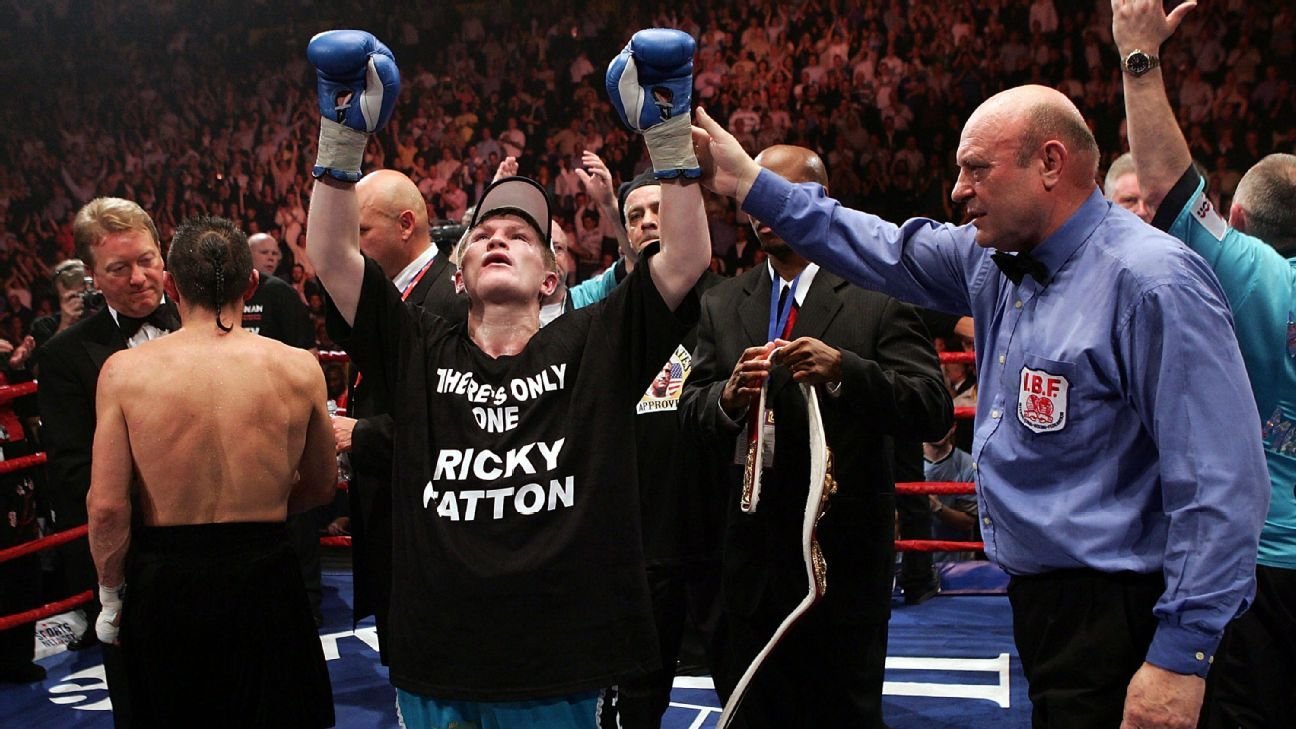
Two stories are worth retelling when thinking back about the ultramagnetic appeal of Ricky Hatton, who died aged 46 at his home in Greater Manchester on Sept. 14.
The first one dates back to 2001, before Hatton became world champion when he made an 11-year-old schoolboy from Oldham his mascot.
Hatton was moved by James Bowes’s story of coping with hydrocephalus — a condition characterised by a build-up of fluid in the brain — and had him carry his belts to the ring before fights. James would continue to be Hatton’s mascot for some of the boxer’s biggest nights.
“He used to turn up at the gym in Hyde [in England],” Hatton said just before fighting Kostya Tszyu in 2005.
“He had scars and bandages on his head and I just wondered who he was. One day I just asked his mum, who sadly is no longer with us, which just makes the whole thing even more tragic. She told me he had a brain disorder and he watched all my fights. It means so much for him to lead me to the ring. He started crying when he carried my British title to the ring that first time and I saw the buzz it gave him.”
The second story is when Hatton wore a fat suit to the ring before he was due to face Paulie Malignaggi in 2008.
His self-deprecating humor was the antithesis to the foul-mouthed braggadocio and trash talk that is typical of pre-fight build ups. Hatton walked to the ring in a fat suit and a robe with the word “Fatman” across the top of the hood, in a joke about his weight that ballooned in between fights. Both stories go some way to explain why Hatton transcended sport, popular on both sides of the Atlantic but especially in his native Manchester in England.
While Hatton (45-3, 32 KOs), won world title belts at junior welterweight and welterweight, perhaps his biggest achievement was his popularity and connection with his fans.
When Hatton fought Floyd Mayweather Jr. in 2007, nearly 20,000 fans traveled from the UK to Las Vegas. Hatton’s magnetic pull was not simply down to his exciting all-action style, rib-bending punches and knockouts.
“I think they felt like they were cheering on their mate,” Hatton said. “They see me up in the ring and they see themselves. I’m not flash. I’m just one of the lads. I’ve never tried to fake it and I think people like that. I had an exciting boxing style and I think people like that too. It was just me.”
When Hatton fought the best of his generation — Mayweather in 2007 and Manny Pacquiao in 2009 — it ended painfully for the boxer known as “The Hitman.”
“I was doing quite well until I slipped,” Hatton joked about getting knocked out by Mayweather in Round 10 at the MGM Grand Garden.
But Hatton was among the best boxers in the world for a period, after winning his first world junior welterweight title by stopping Kostya Tszyu in Manchester in 2005.
– Manny Pacquiao leads tributes to ‘great fighter’ Ricky Hatton
– City superfan Hatton remembered before Manchester derby
“People said if I beat Tszyu it would be one of the best wins by a British boxer ever,” Hatton told ESPN last year ahead of his induction to the International Boxing Hall of Fame.
“I think that’s my greatest win, looking back, and it opened the door for me to fight in the States. He was known globally but, for me, people in America were saying who’s this fat little kid from Manchester who has just stopped Kostya Tszyu on his stool.”
Despite entering the fight against Tszyu as an underdog in front of 22,000 of his home city fans, Hatton dominated the more experienced Tszyu, who was No. 3 in the pound-for-pound rankings at the time. At the end of the 11th round, the Australia-based Russian was pulled out of the fight as he sat on his stool.
Hatton’s career then transcended to another level with six of his subsequent nine fights in the United States. A fourth-round stoppage of Mexican Jose Luis Castillo in 2007 was one of the standout wins, before three defeats in his last five fights.
After being stopped in two rounds by Pacquiao in May 2009, Hatton did not fight for three years while addressing depression and addiction to drugs and alcohol.
“Manny Pacquiao and Floyd Mayweather were highlights, even though I came off second best but they were the best in the business at the time,” Hatton told ESPN in 2024. “I struggled with those defeats after but I’m in a happy place now and I’m happy talking about them now.
“I’m glad I didn’t take my life when I was struggling because would have missed out on so much.”
Hatton said he considered suicide amid alcohol and drug addiction after the Pacquiao loss in 2009 and ahead of his return in 2012. Thousands hoped to see him at the same level he was at five years previously on his comeback, but it was an unrealistic hope.
Hatton ended his career with a knockout loss to Vyacheslav Senchenko in November 2012, a comeback three years after being stopped by Pacquiao. In July it was reported Hatton would end a 13-year retirement to face United Arab Emirates’ Eisa Al Dah (8-3, 4 KOs) in a middleweight contest on Dec. 2 in Dubai.
Like so many former champions, Hatton encountered bigger dangers to his life outside of the ring after he retired. Beneath the wise-cracking and cheerful exterior, Hatton battled depression.
Looking back on his career, perhaps Hatton’s biggest achievement was his popularity as a people’s champion, who fans simply regarded as their mate.

